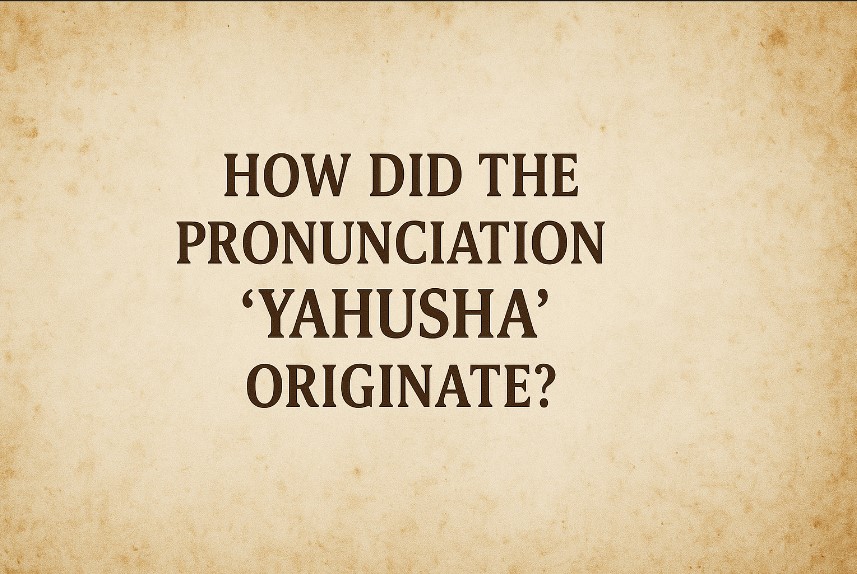The name Yahusha has gained attention among believers seeking the authentic Hebrew pronunciation of the Messiah's name. But was "Yahusha" the original pronunciation, or did it evolve over time? Let's explore the linguistic and historical context.
The Hebrew Name
The name commonly rendered as "Jesus" in English originates from the Hebrew name יהושע (Yehoshua or Yahushua), meaning "YHWH is salvation" or "YHWH saves."
-
YHWH (יהוה) – The sacred tetragrammaton representing God's personal name.
-
Yasha (ישע) – Hebrew root meaning salvation, deliverance, or rescue.
Historical Development
The Hebrew name יהושע appears clearly in the Tanakh (Hebrew Bible) as Yehoshua, notably the successor of Moses. Over time, due to linguistic shifts and shortening, Yehoshua became more commonly pronounced as Yeshua (ישוע), especially in the post-exilic period, reflected in texts such as Ezra and Nehemiah.
Aramaic Influence
During the Second Temple period, Aramaic became the lingua franca among the Jewish people, further shaping the pronunciation. Yehoshua was often contracted to Yeshua, which is the form widely attested historically, including in inscriptions, manuscripts, and other archaeological evidence.
Greek Transliteration
When the New Testament was written in Greek, the Hebrew/Aramaic Yeshua was transliterated as Iēsous (Ἰησοῦς). Greek lacked certain Hebrew sounds, leading to modifications necessary for Greek pronunciation and grammar.
The Emergence of "Yahusha"
The pronunciation "Yahusha" emerged more recently within certain groups advocating a return to what they consider the original, sacred Hebrew pronunciation. Advocates argue it more clearly preserves the sacred tetragrammaton (Yahu), emphasizing the divine element directly embedded in the Messiah’s name.
However, scholarly consensus maintains that the most historically and linguistically supported form is Yeshua, derived from Yehoshua.
Conclusion
While "Yahusha" reflects a sincere desire to honor the sacred name of God (YHWH) within the Messiah’s name, the historically attested and linguistically supported original pronunciation of the Messiah's name in Hebrew and Aramaic contexts is closer to Yehoshua and subsequently Yeshua.
This exploration emphasizes the importance of understanding both historical context and linguistic evolution when discussing sacred names.
